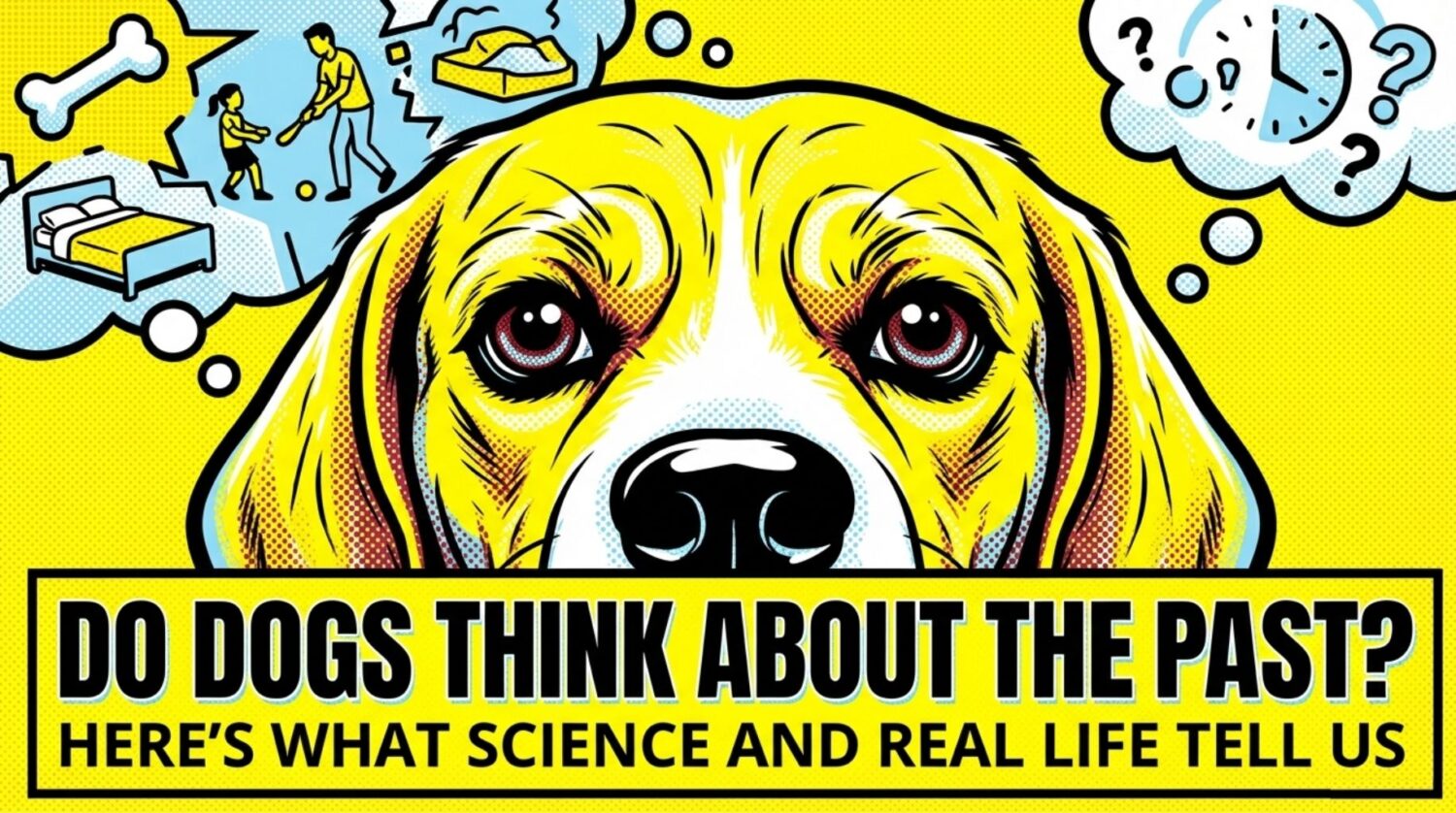Dog War is a documentary film created by the director Andrew Abrahams about the animal cruelty and dog meat trade. We recently cover on this topic and informed you about this film because it’s very important topic about the dog’s life in places where dog meat market exists and the ones who are fighting there on ground to stop it!
Check the previous article about the Dog Meat Trade: The Silent Suffering
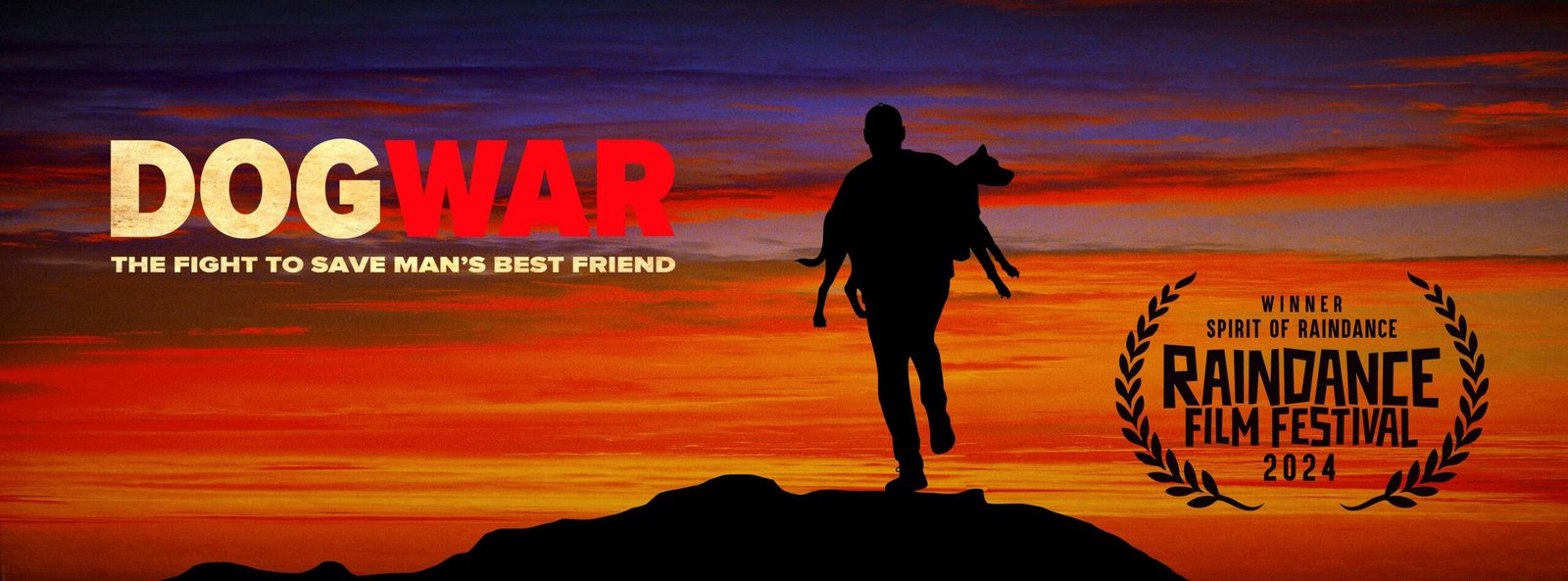
SPIRIT OF RAINDANCE AWARD AT RAINDANCE FILM FESTIVAL 2024
Nominated and Awarded for the Spirit of Raindance Award at this year’s Raindance Film Festival, the film was also the top Raindance Staff Pick for “Off-Beat Docs”.
Touching and action packed, the feature documentary DOG WAR follows a team of war-hardened, canine-loving combat veterans fighting to stop the dog meat trade in South Korea. Covertly and overtly, they infiltrate hidden farms and markets to rescue as many dogs as possible. The film’s wide range of interviewees – activists, politicians, dog meat farmers and vendors – provide a 360-degree view of this complex issue. DOG WAR is not just about dogs, but the clash of perspectives about what is right, ethical, and even natural or cultural. While spotlighting a country at war with itself over the issue, the film also ignites questions about cultural difference and social change.
After the feature documentary DOG WAR won on the film festival, the Director Andrew Abrahams said:
“I am absolutely thrilled to have won the Spirit of Raindance award! Not just because it is one of the festival’s top awards, but because it validates the real, grassroots and boots on the ground approach to independent film, like DOG WAR, and to the issue and efforts at the heart of the film: stopping the dog meat trade.”
Doggozila Magazine had the honor to interview the recently awarded Andrew Abrahams, the director of the winning independent documentary DOG WAR. Please read the interview conversation between Doggozila Magazine and the Director in the following text.

INTERVIEW WITH ANDREW ABRAHAMS, FILM DIRECTOR AND PRODUCER
- Doggozila Magazine:
Can you tell us a little about your background and what inspired you to become a filmmaker?
Andrew Abrahams:
I’ve always been interested in telling hidden stories, shining light in dark places and revealing tensions that otherwise might go unnoticed. I have a background both in journalism and photography and wanted to combine those two interests. Eventually I studied and received a master’s degree in visual anthropology which was about exploring cultures through the visual media. My interest in still photography turned to the moving image and to moving stories.
- Doggozila Magazine:
What draws you to the subjects you choose to document?
Andrew Abrahams:
I specifically look for tensions or contrasts in the stories that I tell. Rather than just choosing a subject, like “the dog meat industry,” I look for a specific angle or focus that is compelling, dramatic, intriguing–that usually involves some kind of clash of assumptions, ideas or worlds. The film itself becomes a means to reconcile those contrasts and bring about a new way of thinking or feeling. In the broadest sense it has to do with the juxtaposition of suffering and beauty, or maybe desperation and hope, or cruelty and compassion.
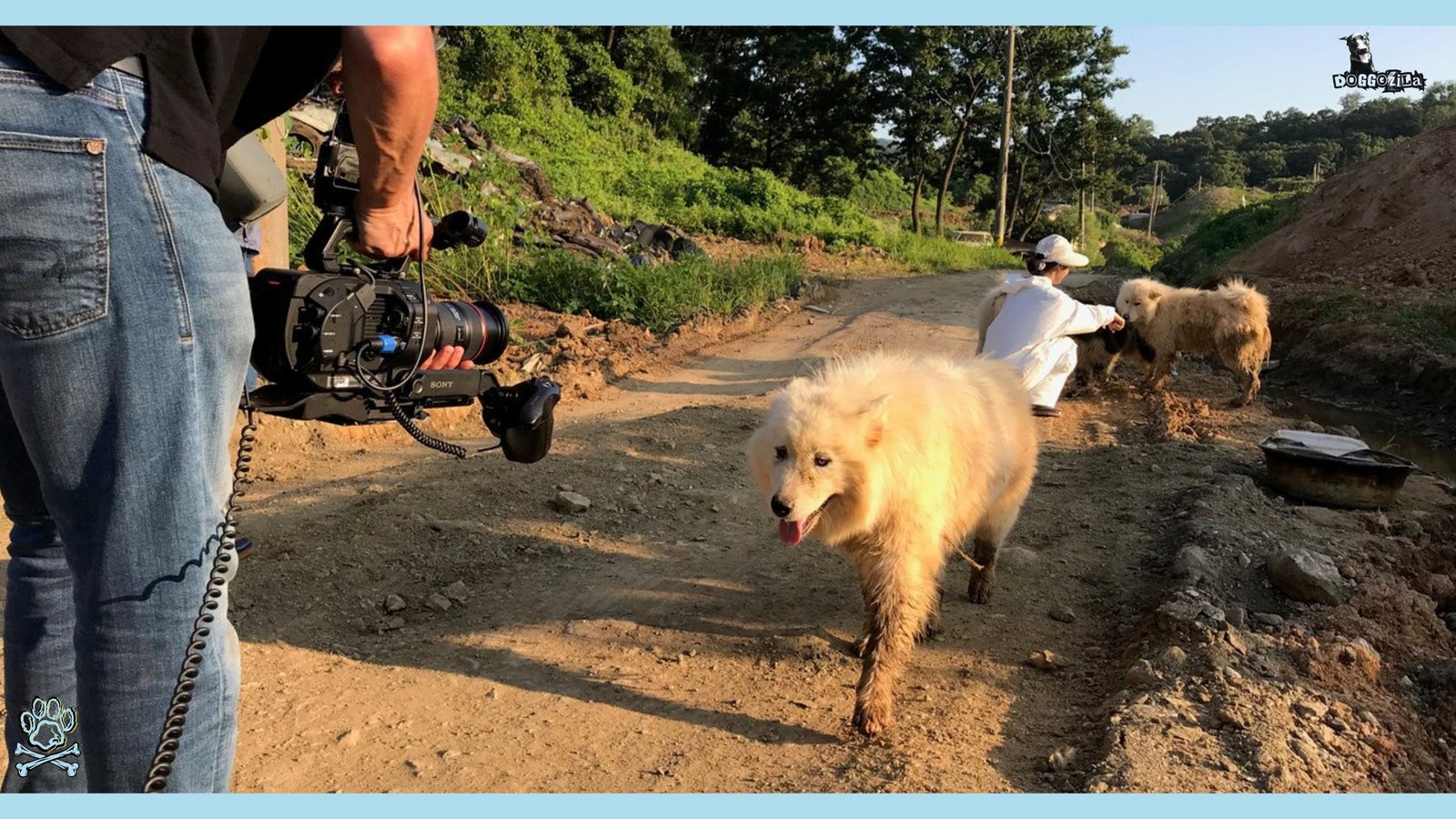
Background and Inspiration for Dog War
- Doggozila Magazine:
What inspired you to create DOG WAR? Was there a specific moment or story that motivated you?
Andrew Abrahams:
Someone brought this idea to me, the idea of a film that exposed the dog meat industry. While I was shocked to learn about this, as I said before, that wasn’t enough for me. So I looked for an angle or entree into that story that would make it interesting, provocative and nuanced. Eventually I learned about a team of combat veterans who had made it their life mission to rescue dogs from the dog meat trade.
I found it fascinating that war hardened former soldiers, trained to kill and not really express emotion had such open and bleeding hearts that they were willing to risk so much to save vulnerable dogs. The war metaphor also extended to the country of South Korea itself, where the nation was divided about the issue of dog meat. I began to see more and more of the ways in which this story represented profound universal tensions, for instance between West vs East, tradition vs modernity, heroism vs vigilantism, machismo vs tenderness, and animal rights vs human livelihood.
Dog War Research and Preparation
- Doggozila Magazine:
What was the research process like for this documentary? How did you gather information and access the areas where the dog meat trade occurs?
Andrew Abrahams:
I contacted many of the most prominent organizations that are working to rescue dogs from the dog meat trade, and did extensive research on the subject. When you take on such niche issues it’s easy to find advocacy groups who are very interested in helping out.
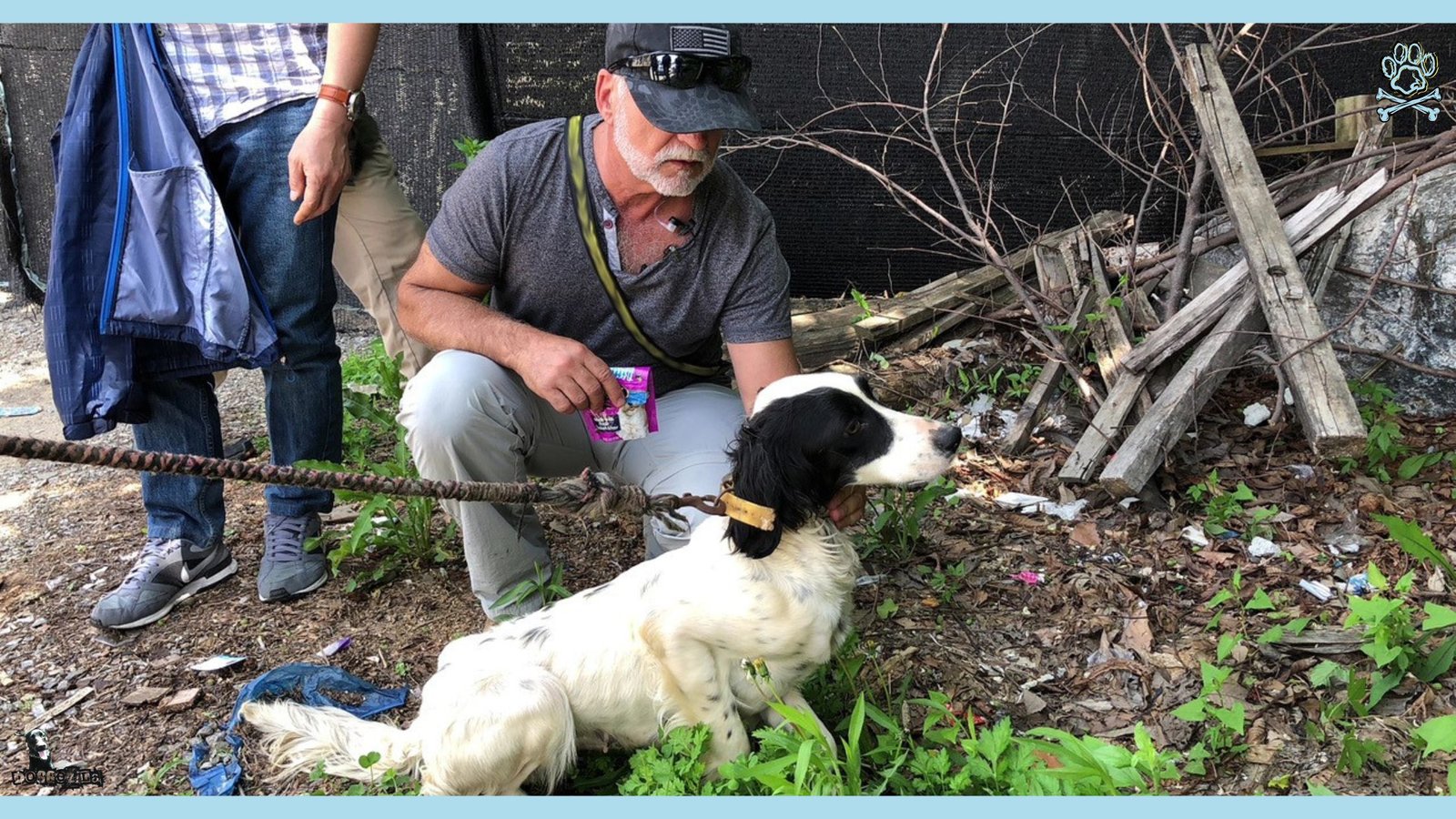
Filming Dog War
- Doggozila Magazine:
Can you describe any particularly challenging moments during the filming of DOG WAR?
Andrew Abrahams:
There were many challenging moments. The most challenging of course was to see the dogs suffering, in distress, or about to be killed, and knowing there was nothing I could do about it. Luckily, the camera can be a mediating device or a buffer that gives me emotional distance. My focus is on focus itself, framing, composition–where I’m no longer making sense of or judging what I’m seeing with the camera. It becomes a visceral process of responding to the needs of the moment as a sort of conduit and framer of the moment. So those tensions that I mentioned above are also present within me as the filmmaker: on one hand holding the compassion for what I’m witnessing but also the compartmentalizing in order to get the job done.
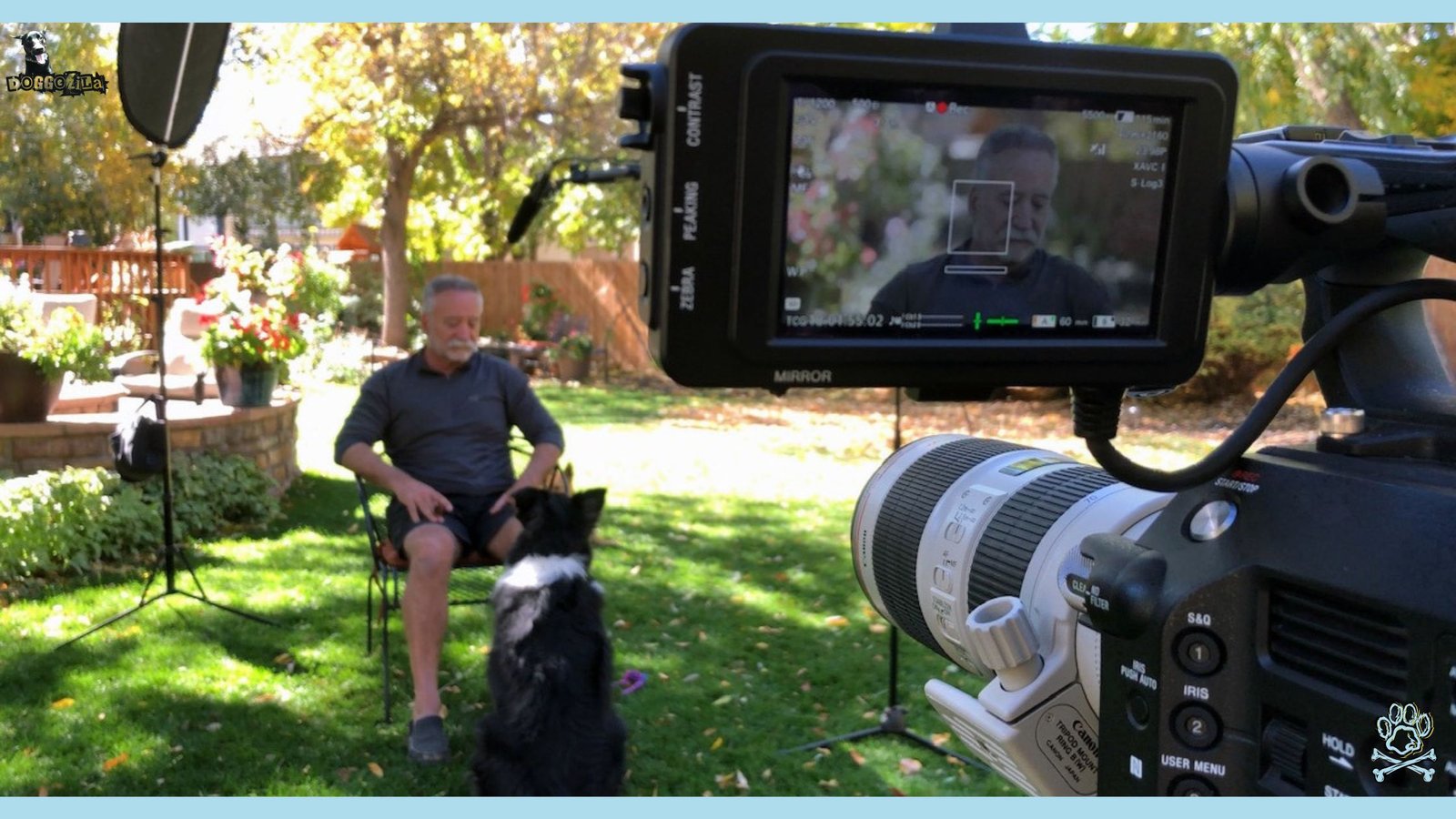
War Dog Production
- Doggozila Magazine:
How did you approach filming such a sensitive and potentially dangerous topic?
Andrew Abrahams:
I approached it with an open mind and an open heart. It was never my intention to demonize the dog farmers or the meat vendors. I understand that they are following a tradition or habit, that this has been their livelihood and that they have reasons to do what they are doing. At the same time I was embedded with a team that was using covert and potentially illegal means to rescue dogs and do what they could to put an end to the trade.
Had we been caught on any of the rescue missions, I could have been an accomplice. And in any case, I put myself in potential harm’s way. I accepted this level of danger and felt like it was an appropriate level for me, especially given my desire to go deeply into the world I was investigating and to make an impact by bringing it to a wider audience.
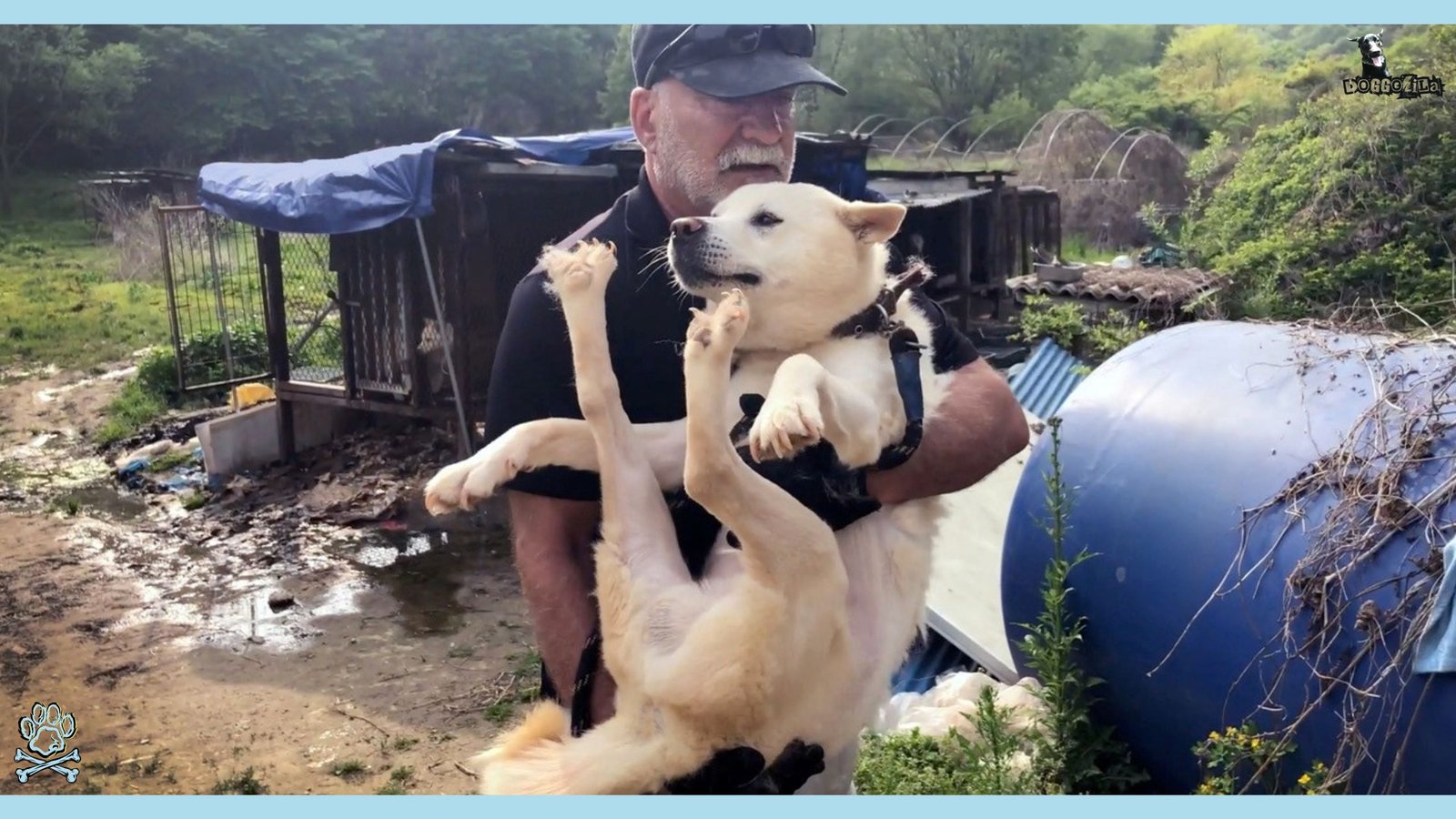
Ethical Considerations
- Doggozila Magazine:
How did you handle the ethical considerations of filming the dog meat trade? Did you encounter any dilemmas, and if so, how did you resolve them?
Andrew Abrahams:
The subject of the film is in itself an ethical consideration. Is the raising and selling of dogs for human consumption ethical? For me this was ripe to explore and it is a question that I wanted to bring to the audience. Of course there are other ethical considerations such as, is breaking the law ever OK in pursuit of saving lives, In particular dogs’ lives? I have my feelings about these things, but it’s more important for me as a filmmaker and as an artist to bring these complicated and nuanced questions to an audience.
- Doggozila Magazine:
What steps did you take to ensure the safety and well-being of both the dogs and the people involved in your documentary?
Andrew Abrahams:
It was a guiding principle for all of us not to harm any dogs in the process of making the film. That seems to go without saying, but some activists and media makers have paid dog meat farmers or vendors to stage the killing or processing of dogs for the camera. I would never do this. But I also knew it wasn’t my job to save these dogs, but to be a witness.
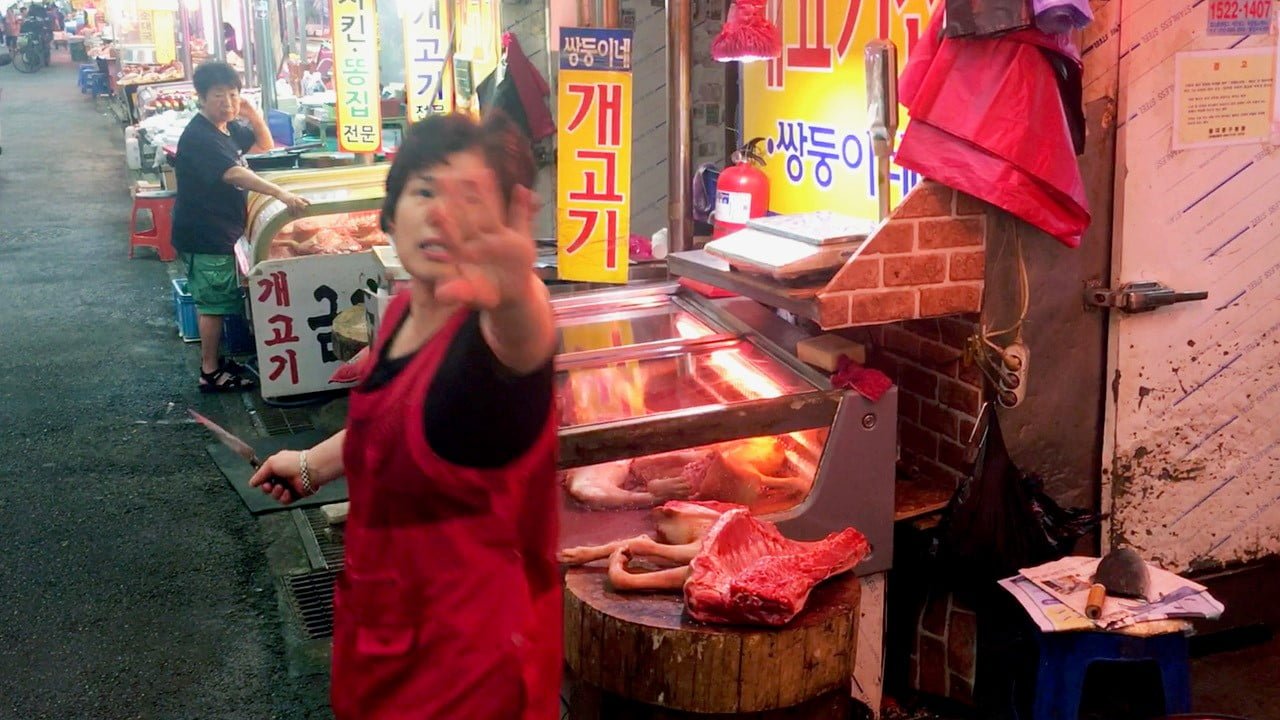
Dog War Impact and Advocacy
- Doggozila Magazine:
What impact do you hope DOG WAR will have on its audience?
Andrew Abrahams:
Dog War Is a window into a world very few people know about. It can be shocking and grotesque, but also heroic and hopeful. My hope is that people are moved by the complexities in this issue and begin to question their own choices about what they eat, where their compassion lies, and what are the “wars” they are willing to fight for.
- Doggozila Magazine:
Have you partnered with any animal welfare organizations for this project, and how have they contributed to the documentary?
Andrew Abrahams:
As independents, we did not partner with any organizations. The subjects that we follow in the film are from a nonprofit organization called K9 Global Rescue, but this was not in any way a formal partnership. They had no editorial influence at all. We hope to form partnerships in distribution, however. In production, it was important for us to keep a very clear firewall between advocacy and activism on one hand and a more unbiased media representation on the other.
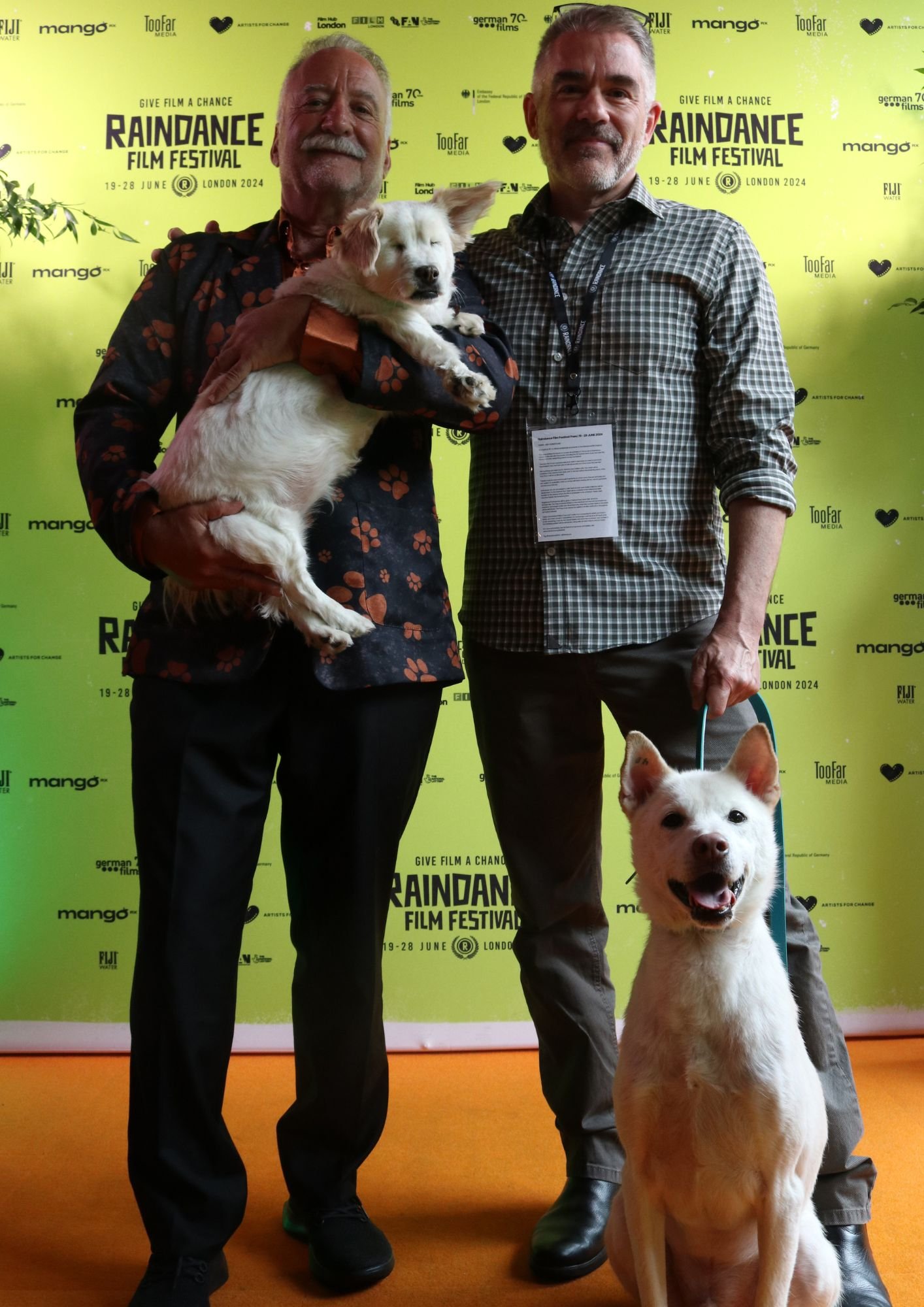
Dog War Storytelling and Structure
- Doggozila Magazine:
How did you structure the narrative of DOG WAR to convey both the gravity of the issue and the hope offered by organizations working to stop the trade?
Andrew Abrahams:
I wanted to bring the viewer into the emotional ride that we as filmmakers went on. The technique was to hook them immediately by an action-packed farm raid in the cold open of the film. In the editing process we looked for beginning middle and end, and we’re fortunate that, despite the awfulness, by the end of the film there was abundant reason for hope and redemption.
- Doggozila Magazine:
What techniques did you use to engage viewers emotionally and raise awareness about the dog meat trade and animal cruelty?
Andrew Abrahams:
The challenge here was finding the balance between showing too little and too much of the cruelty involved in the dog meat trade. We needed to show the reality but also not off-put viewers. I hope we found that right balance! No matter what, it’s an emotionally charged issue. But it wasn’t enough for me to target that emotion towards a villain.
Personal Insights and Experiences
- Doggozila Magazine:
Can you share a particularly memorable or moving experience you had while working on DOG WAR?
Andrew Abrahams:
Going back to one of the farms after it had been dismantled and removed, seeing it return to nature with grasses and wildlife, was profoundly satisfying and moving. This made me tear up more than even seeing the suffering of the animals. Something about the cliche of “hope springs eternal” rang true.
- Doggozila Magazine:
How has creating this documentary affected you personally and professionally?
Andrew Abrahams:
I became a vegetarian again after my first trip to South Korea.
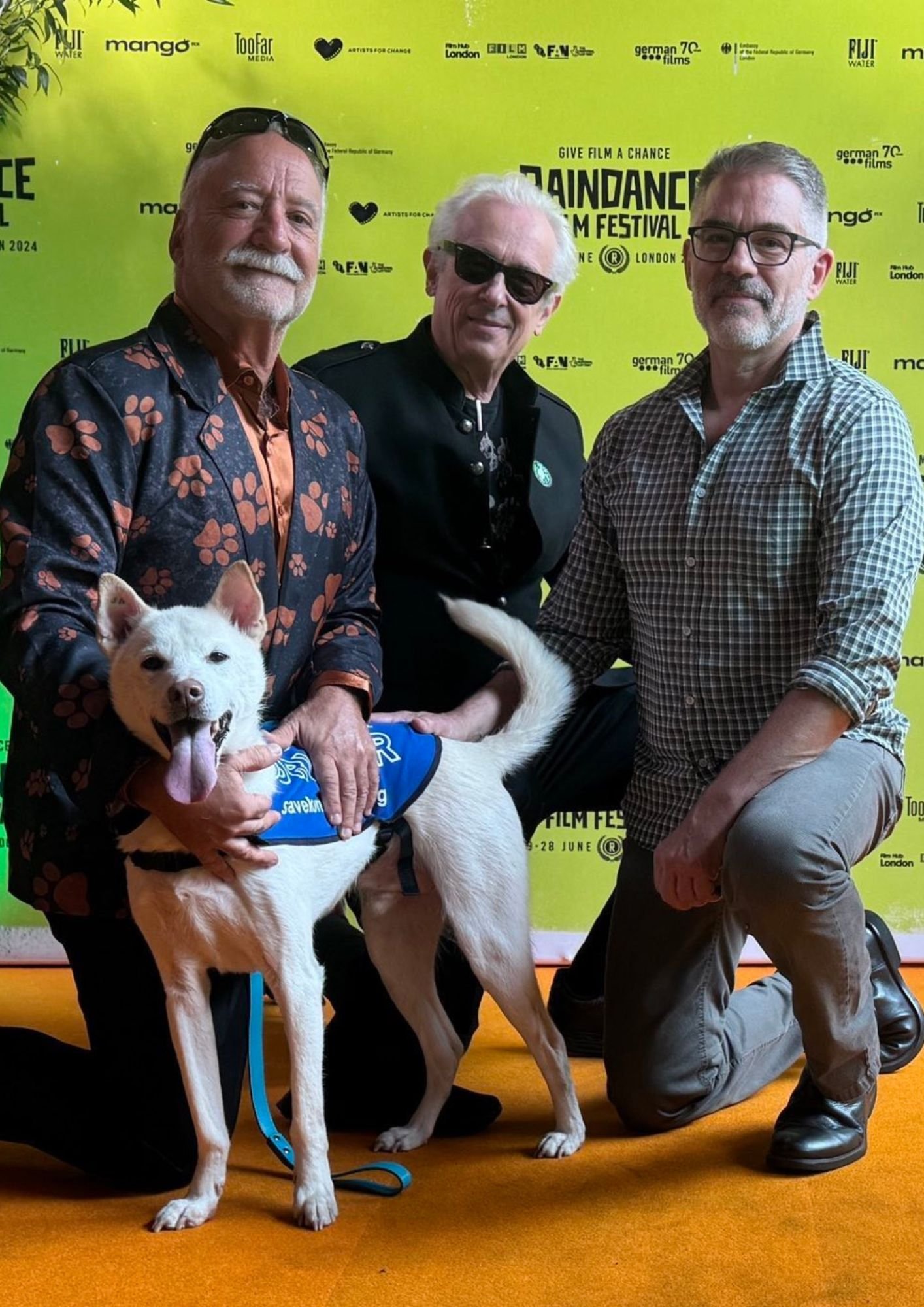
Future and Broader Context
- Doggozila Magazine:
What are the next steps after the release of DOG WAR? Are there any follow-up projects or initiatives planned?
Andrew Abrahams:
Too soon to reveal.
- Doggozila Magazine:
In your opinion, what are the most effective ways to combat the dog meat trade and animal cruelty on a global scale?
Andrew Abrahams:
We hope that Dog War can be an effective way to combat the dog meat trade and animal cruelty on a global scale!
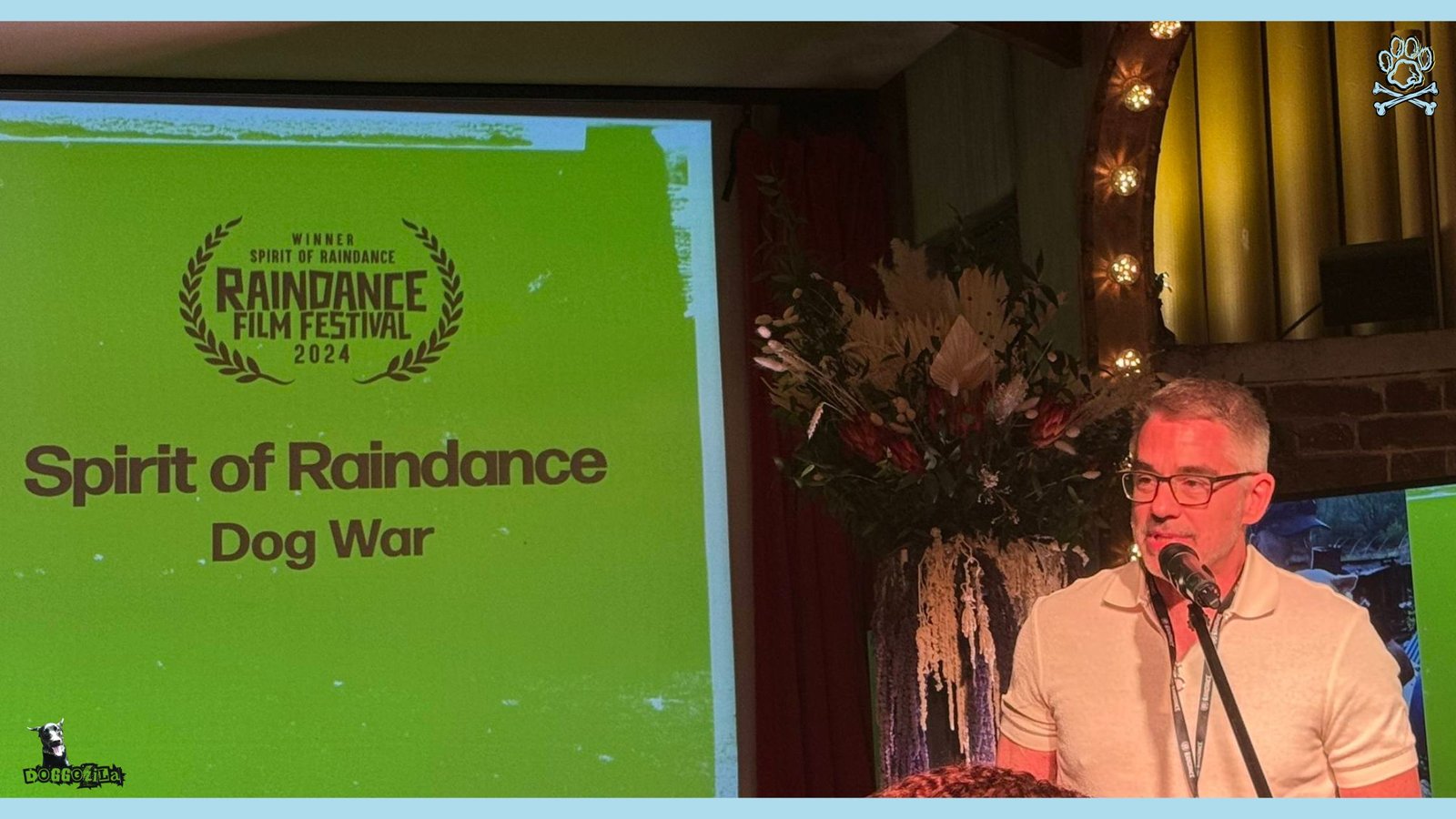
Audience Engagement and Distribution
- Doggozila Magazine:
How do you plan to distribute DOG WAR to reach the widest possible audience?
Andrew Abrahams:
Our world premiere was at Raindance Film Festival, one of the foremost independent film festivals in the world. We hope that our premiere and possible award here will help us secure a sales agent and worldwide distribution.
- Doggozila Magazine:
What strategies are you using to engage viewers and encourage them to take action against the dog meat trade?
Andrew Abrahams:
We encourage viewers to go to our website dogwarmovie.com where we will eventually have a lot of resources for further research, activism and impact.
Broader Impact and Reflection of Dog War
- Doggozila Magazine:
How do you think DOG WAR contributes to the broader conversation about animal rights and welfare?
Andrew Abrahams:
Dog War has the potential to be the first mainstream independent feature documentary that deeply explores the dog meat trade, and in so doing has the potential to open eyes and hearts to an issue which for too long has been hidden or ignored.
- Doggozila Magazine:
What advice would you give to other filmmakers who want to tackle difficult and important social issues through their work?
Andrew Abrahams:
Jump in!
Doggozila Magazine advice for the end of this interview would be: Always listen an awarded film directors!

The Winning Speech by the Director Andrew Abrahams
More information and links about DOG WAR film
– Official Website Link –
– DOG WAR FILM TRAILER LINK –
– Raindance Film Festival Link –
NOTES TO EDITORS:
Film Credits:
An OPEN EYE PICTURES Production
In Association with 10 LIVES CONTENT
Directed & Produced by ANDREW ABRAHAMS
Editor: AARON MATHES
Music Composer: JUSTIN MELLAND
Director of Photography: ANDREW ABRAHAMS
Executive Producers: DANIEL E. CATULLO, LYNN ROSA, CLAY PECORIN, RUSSELL GEYSER

THE HISTORY OF MEAT CONSUMPTION AND THE DOG MEAT MARKET
Meat consumption has been an integral part of human history, shaping cultures and diets worldwide. From the early days of hunting to modern farming practices, humans have relied on various animals for sustenance. Among these, the consumption of dog meat stands out due to its cultural specificity and the ethical debates it sparks.
A Brief History of Meat Consumption
Humans have consumed meat for millions of years, beginning with our ancestors who hunted wild animals. The shift from hunting to domestication marked a significant evolution in meat consumption. Cattle, pigs, sheep, and poultry became the primary sources of meat in many cultures, each bringing unique culinary traditions and dietary practices.
The Cultural Context of Dog Meat Consumption
While cattle, pigs, and chickens are the most commonly consumed animals globally, the practice of eating dog meat has deep roots in certain cultures, particularly in parts of Asia. In countries like China, South Korea, and Vietnam, dog meat has been traditionally consumed, often believed to have medicinal properties and cultural significance.
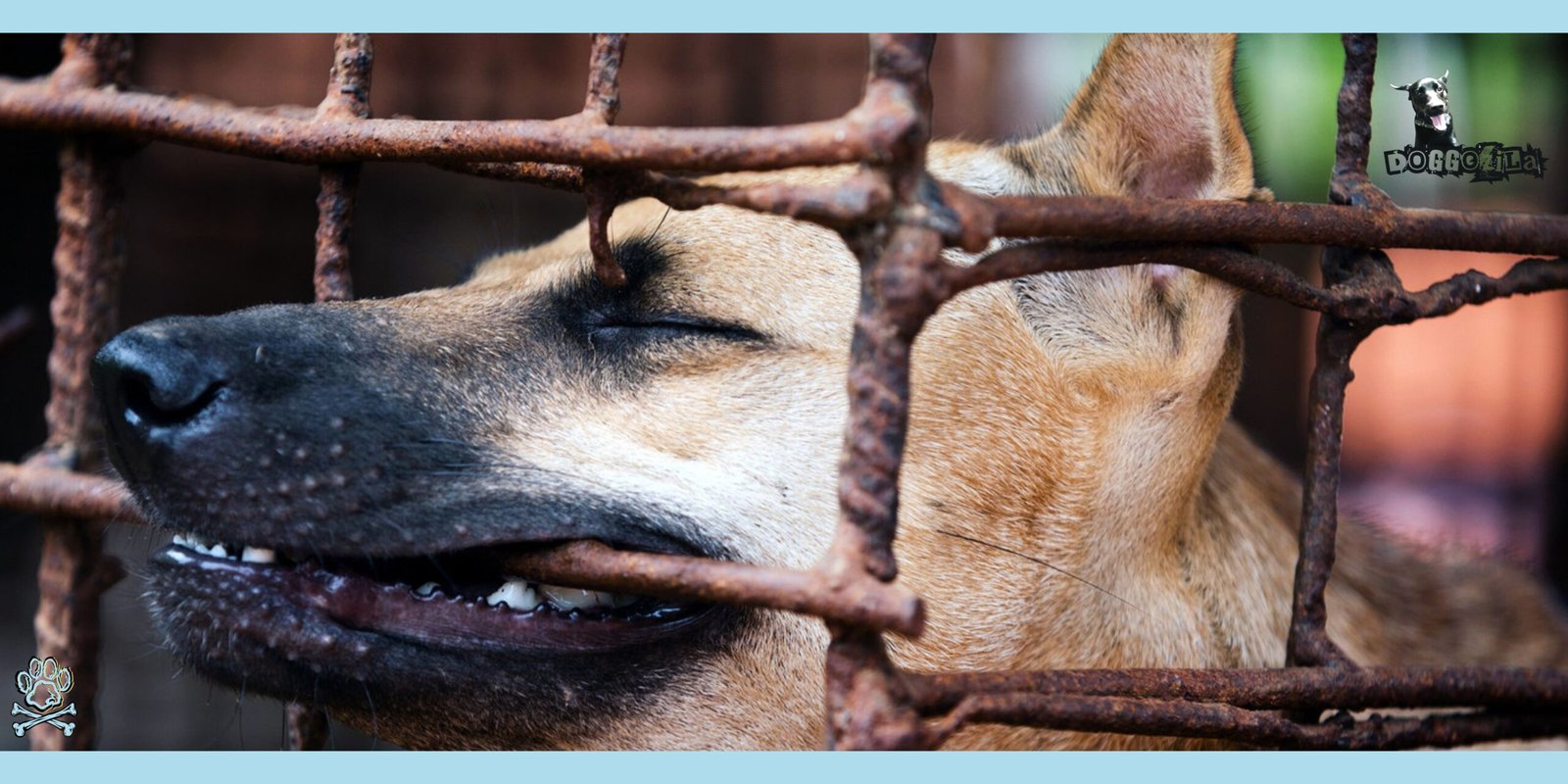
THE DOG MEAT TRADE IN ASIA
The dog meat trade in Asia is a complex issue intertwined with cultural traditions and modern ethical concerns. In many regions, dogs are bred, traded, and slaughtered specifically for their meat. This practice is often defended by proponents as a cultural tradition, while opponents argue that it is inherently cruel and inhumane.
Efforts to Combat the Dog Meat Trade
Numerous organizations are actively working to end the dog meat trade, citing animal welfare and ethical considerations. These groups engage in rescue operations, public awareness campaigns, and legislative advocacy to protect dogs from this trade. They aim to shift public perception and encourage humane treatment of animals.
Ethical and Health Concerns
The ethical debate surrounding the dog meat trade is intense. Critics highlight the conditions in which dogs are kept and slaughtered, often pointing out the lack of regulations and the cruelty involved. Additionally, health concerns have been raised regarding the consumption of dog meat, particularly in areas where animals are not subject to health inspections.
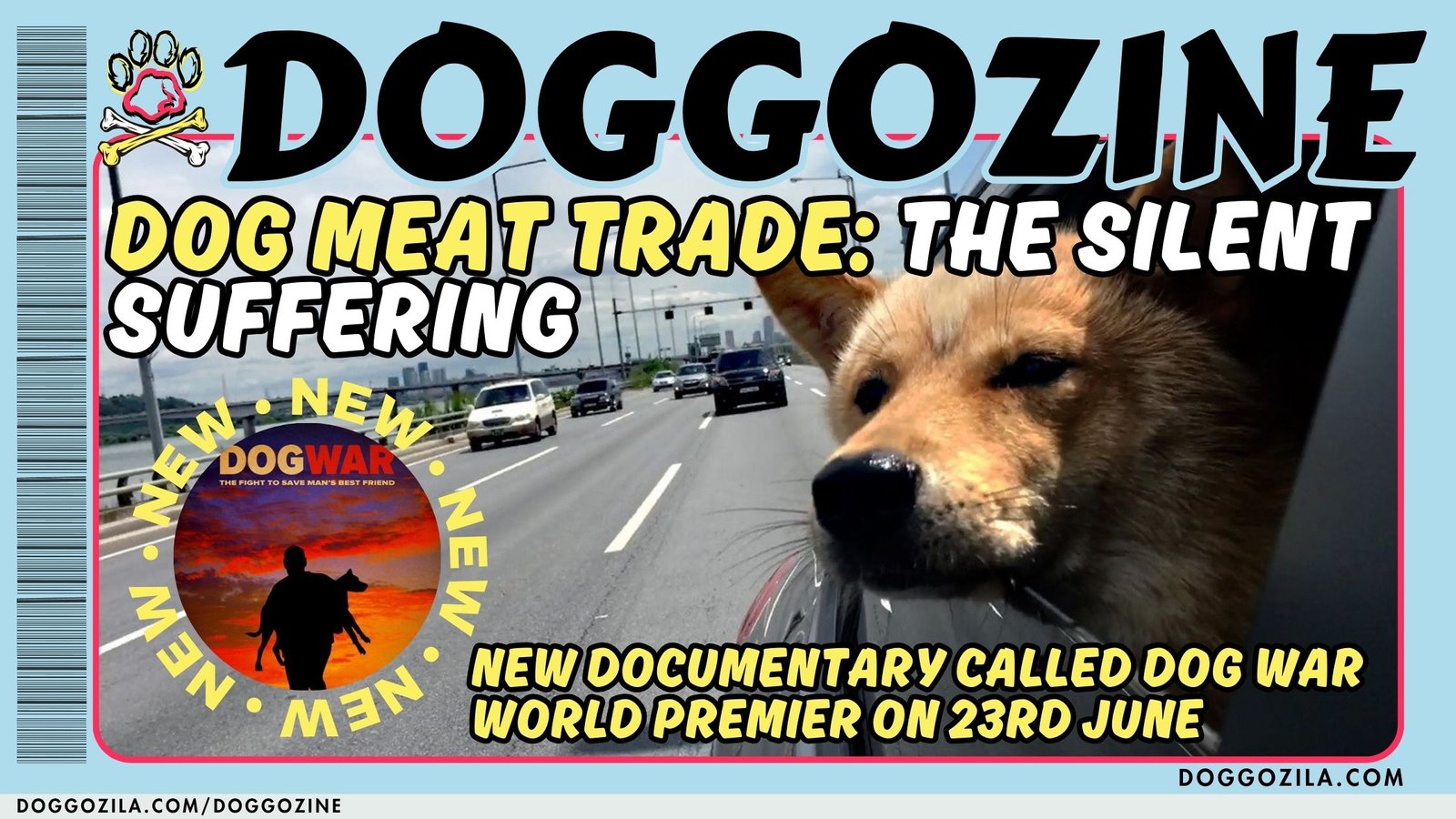
THE ROLE OF DOCUMENTARIES IN RAISING AWARENESS
Documentaries like Dog War play a crucial role in shedding light on the realities of the dog meat trade. By documenting the lives of dogs and the efforts of organizations fighting against this practice, these films aim to inform and mobilize global audiences to take action.
The Future of Meat Consumption
As global awareness about animal welfare grows, the future of meat consumption, including the dog meat trade, faces significant scrutiny. Shifting cultural norms and increased advocacy for animal rights suggest a potential decline in the practice. The push for more ethical and sustainable food sources is likely to continue, influencing how societies view and consume meat.
In conclusion, the history of meat consumption is vast and varied, reflecting human adaptation and cultural diversity. The specific case of the dog meat trade in Asia highlights the ongoing struggle between cultural practices and modern ethical standards. Through continued awareness and advocacy, there is hope for a future where all animals are treated with respect and humanity.






